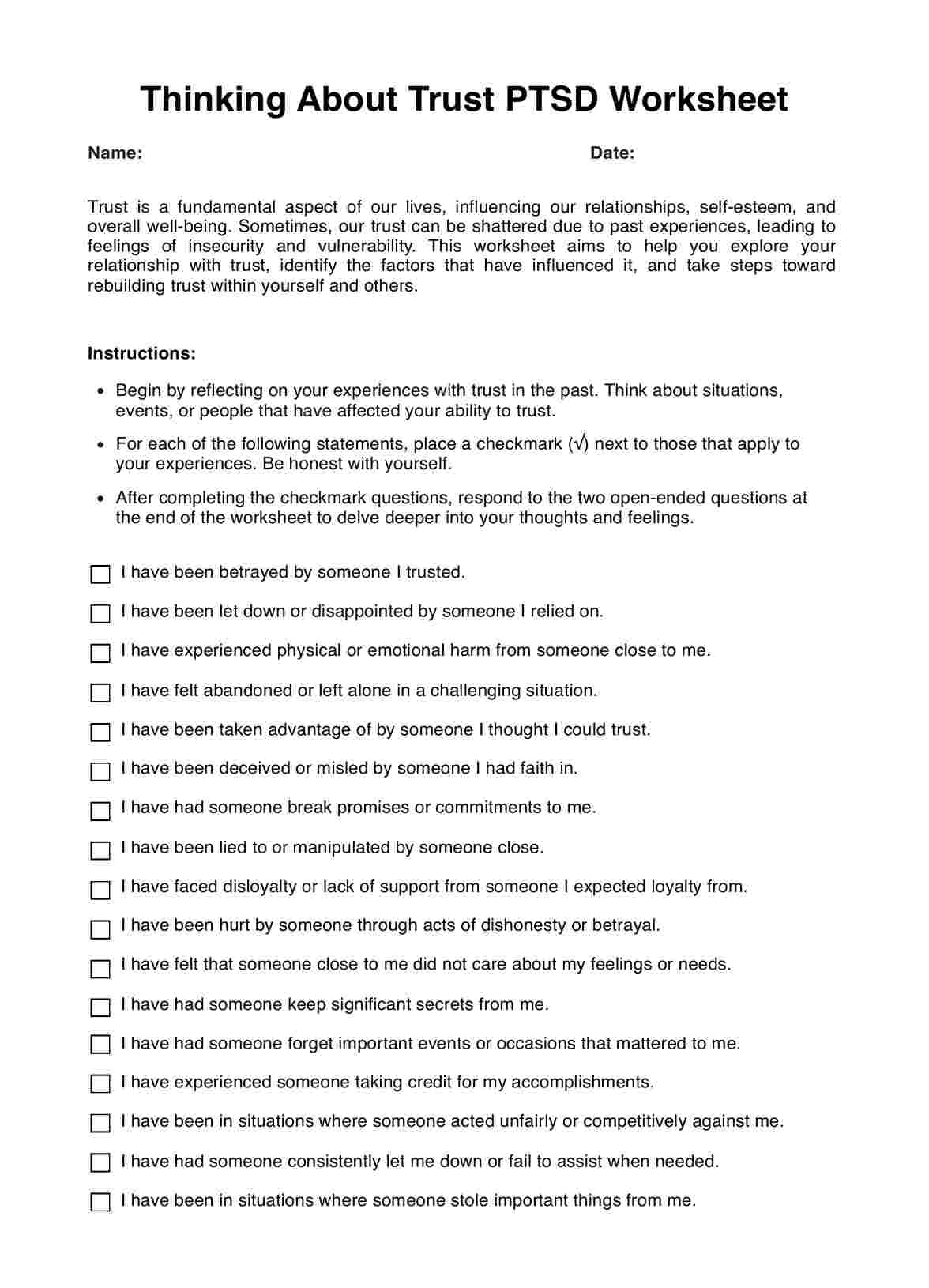Completing the worksheet typically takes a few hours, but the time varies depending on individual reflection and depth of response.

Thinking About Trust PTSD Worksheet
Whether seeking personal growth or assisting others in trust-related therapy, the Thinking About Trust PTSD Worksheet helps rebuild and foster trust.
Use Template
Thinking About Trust PTSD Worksheet Template
Commonly asked questions
The worksheet helps individuals by guiding them to reflect on past trust-related experiences, identify issues, and formulate strategies for rebuilding trust.
This worksheet is best used when individuals want to address trust-related issues linked to Post-Traumatic Stress Disorder (PTSD) or when therapists and counselors want to aid clients in exploring and healing trust issues.
EHR and practice management software
Get started for free
*No credit card required
Free
$0/usd
Unlimited clients
Telehealth
1GB of storage
Client portal text
Automated billing and online payments











